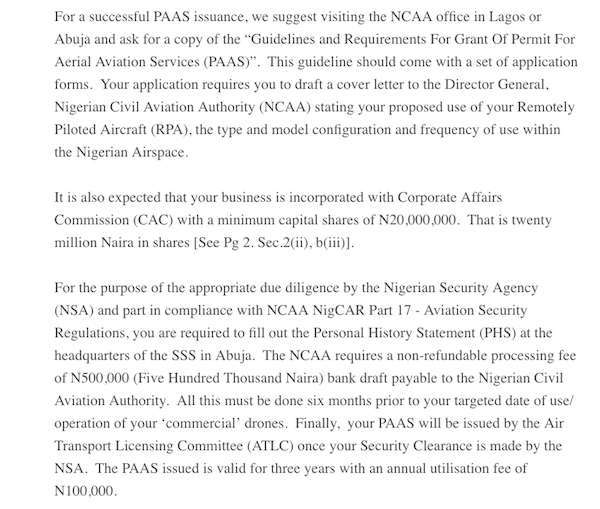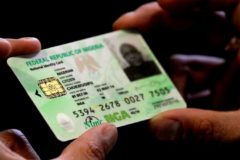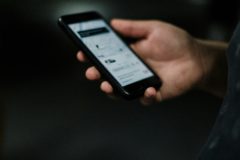First, the NCAA, Nigeria’s aviation regulatory body said that you can’t fly a drone without permission, now there’s word circulating that you need blood from a virgin cow, fur from an albino rat, and tears from a unicorn under the pale moonlight, just to get a permit. Oh wait, I’m reading from a wrong list. Here’s what you actually need:
https://twitter.com/kazey/status/734289612827463680
No kidding. There was a big drone discussion on Twitter yesterday. One Ndubisi Arinze Eze, a Consular Attaché for Trade Investments (Aviation Plus), published a LinkedIn article titled, “Managing NCAA Airworthiness and Certification For Your Commercial Drone Business” where he gave guidelines on what to do to get a Permit for Aerial Aviation Services (PAAS). Here’s an excerpt.
It’s like the time Cinderella’s stepmother told her she could go to the ball…then went on to give an impossible-to-finish list of chores she had to do before she could. It’s nuts because the actual drones cost less than the NCAA’s rent-seeking permits. I’ve seen people blame the NCAA’s knee-jerk reaction on (in)security, but that’s not an excuse to position yourself as a barrier to innovation.
For some context, all it takes to get your drone registered in the US of A is to be older than 13 years old, have a credit card, email address, physical address and $5. They have cordoned off certain no-fly zones and are even testing a drone detection system at JFK Airport so they can take care of the rogues who fly their UACs too close to aircraft. It’s clear to see that their regulation is still evolving because UACs are very nascent technology and it doesn’t make any sense to make blanket statements/bans when you don’t completely understand a situation. But no, NCAA is doing revenue generation.
$5 in the United States, N500,000 in Nigeria. Maybe CBN has told NCAA something.
— Akin Oyebode (@AO1379) May 22, 2016
And it’s not just Nigeria – some African governments have had really weird responses to phenomena they don’t understand. Last year, Kenya banned all civilian drone use but thankfully, they saw the light last April. Some others are responding to UACs with wisdom and knowledge and taking advantage of them to solve local problems. Like Tanzania, who is using the technology to counteract poaching, and Rwanda, who has found use for them in its Health sector. But the NCAA wants to “regulate”.
Hat tip to Osarumen for helping with this article.





















